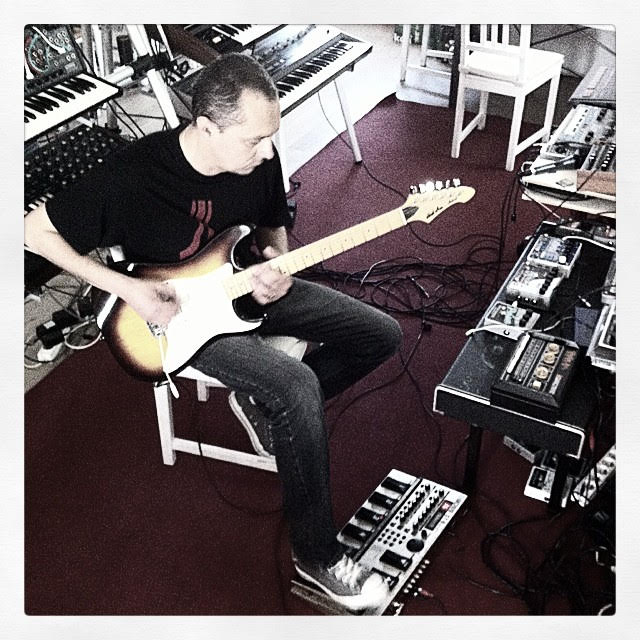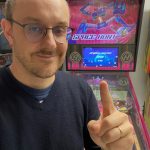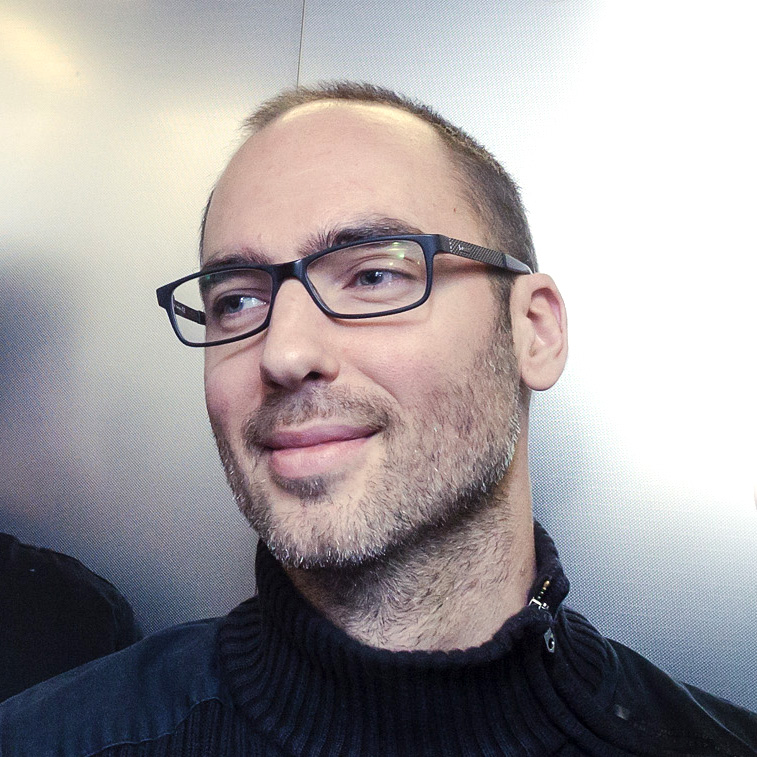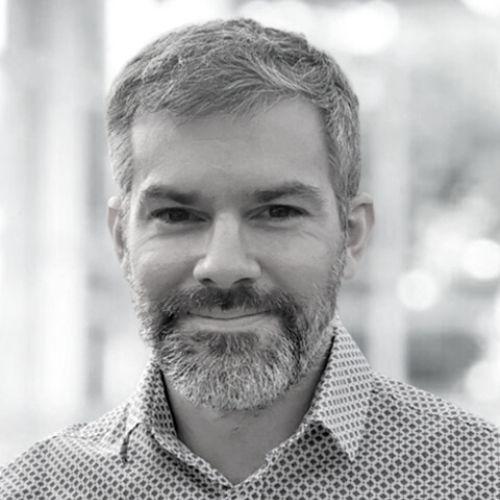Interview with Hervé Coussillan – Composer / Sound Designer
by Sabine Botella
Hello Hervé, thank you for agreeing to this interview. You’re a musician. Could you tell us how you express your passion, do you produce? Are you part of a band?
Yes, I’m a musician and I’ve been making music all my life. I like to work on several projects at the same time. My main activity is composing original music for the theater, where I work closely with a director. I also play keyboards in a funk band and produce electronic music albums with another group.
How did you come to work on the Space Hunt pinball machine?
In fact, Alexandre Mak and I share a passion for video games and pinball, and we met at the Game Center in the Gers because we had a mutual friend. This event, organized by a collector who has over 30 pinball machines and 300 arcade terminals, is a must for enthusiasts. We talked about our shared passion for pinball, and I told him about music, so when the Hexa Pinball project was born, he immediately thought of me. It was a unique opportunity to combine my two passions: music and pinball machines – how could I resist!
But in the end, this was a first for you, as you’d never worked on this type of project before?
Yes, I’d never done it before, but I don’t think anyone in France had. I didn’t really know where to start and I didn’t realize how much work it would take. I did the music, voices and sound effects. All the voices on the pinball machine are mine, reworked, but there are 75 of them. They are very short phrases that had to be done in English and French, making a total of 150 voices that I had to record and process. As for the sound effects, I had to invent them: bumpers, slingshots, etc. had to be soundtracked, so we did between 100 and 120 of them. There are also 25 musical themes, but to get 25 I did a lot more, all of which were original compositions. The music is essentially composed of electronic sounds, but there are also guitars and bass, and everything else is keyboard.
How did you organize your work with the other team members?
In fact, I used to propose my creations to Luis Dos Santos, the game designer and project manager, but sometimes we didn’t have the same vision because it didn’t correspond to the atmosphere he wanted for such and such a mission, so we had to redo it. It was a constructive collaboration, even if it generated a lot of work. Luis had a very precise vision of what he wanted, since he was the one who created the game. I was also in contact with Alexandre Labedade for the animations. He would send me video clips without any sound, and it was up to me to cartoonize them, to put sound effects on them, and musical backgrounds to match the action. I also exchanged a lot with Alexandre Mak, because we shared this passion, and with Christophe André, who was entering a world he didn’t know, but it was good to have an outside view. In fact, it was he who suggested the “Pause” mode, something we’d never have thought of, but we thought it was a great idea and he did it.
You already know the constraints of working on a project with your theater experience, but what were the additional constraints you encountered working on Flipper?
Some missions are timed; for example, you have 45 seconds to perform an action, so the music must be tuned in. Then there are the codes: in the world of pinball, we know that a bumper must make a certain type of noise, and the same goes for other elements. You can’t deviate too much from this, you have to take into account the player’s expectations, which leaves me less freedom, you have to respect the Pinball codes of propriety. Another constraint not to be overlooked is sound reproduction. We’re used to listening to music on a hi-fi system, headphones, telephone or similar, but on a pinball machine it’s very different: you have to adapt to the sound system. The music has to blend properly with the pinball sound effects that play over it, so there’s a delicate mixing to be done. Finally, the amount of work involved is something I’d greatly underestimated. To tell you the truth, we’re still making sound modifications that will be incorporated into the game in future updates. By the way, the “Grand Finale” mission has still not been coded, so I’ve still got a whole mission to do. What was difficult was that I didn’t have the pinball machine on site, and it wasn’t easy to work in the Hexa Pinball workshop either, as I need a quiet environment, but we managed to adapt. The constraints don’t make you forget the pleasure, which remains intact, and you have to look on the bright side: you’re obliged to try out the machine. 😊
What do you take away from this experience? Did it open new doors for you?
It was a great adventure for me, and I’m ready to do it all over again tomorrow! I’m also very proud to have taken part in the construction of a French Flipper, something I’d never have imagined, even in my wildest dreams, that I’d have the chance to do one day. Yes, it’s opened up new horizons for me, and now I’m ready and able.
Flipper has now been presented to the public. Have you had any feedback on the music?
Yes, it’s been very positive. To my surprise, there’s even an American forum where I have fans. When Flipper was released, we made a trailer in which there was a part where I sang, and people said the song stuck in their heads, which is really great.
Do you remember the first time you discovered Pinball?
Yes, I must have been 7/8 years old, I had my nose right up to the glass, I was fascinated by the sounds and lights and I started playing straight away. I tried to understand how it worked, because I was already curious and wanted to know what operated what.
And when did you start collecting?
It was a nostalgic time. I had my first pinball machine when I was about 25, and an acquaintance of mine was selling his and he wasn’t using it anymore. I should never have done that, because it awakened the collector in me – it was the beginning of the end. What’s more, I was unfortunate enough to have space at home, so I had 1, 2, 12 and then 25 of them. Today I’ve got 17, because I’ve sold some of them. I’ve gone from mechanical pinball machines to electronic pinball machines.
Compared to video games, what do you think pinball machines have that you don’t?
I think it’s more user-friendly, even if pinball is less present in bars and has developed more in private homes. Pinball is more fun, more interactive, it’s not just a screen, it’s a physical machine. I’m a big fan of machines, I’ve done a lot of electronic music and I’ve got a lot of machines with wires running all over the place. A pinball machine is an object; you can think of it as furniture or decoration, which a video game can never be, and if you take it a step further, you could even say it’s a work of art.






